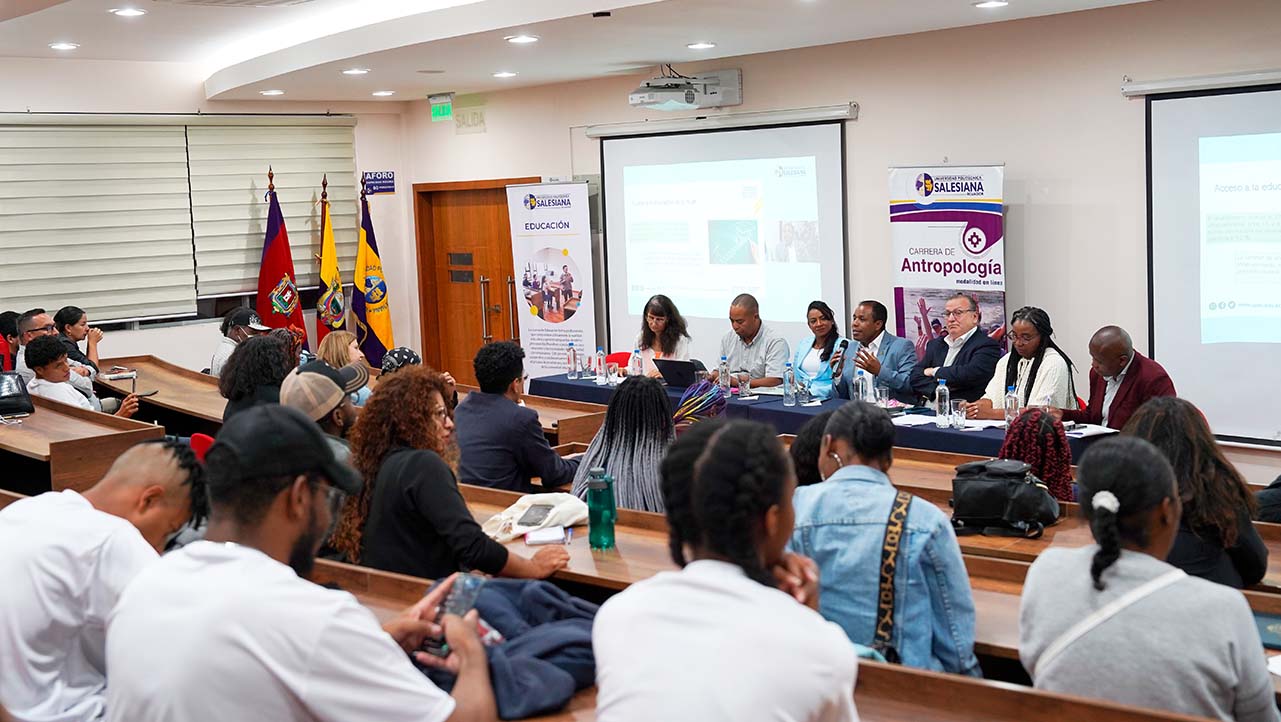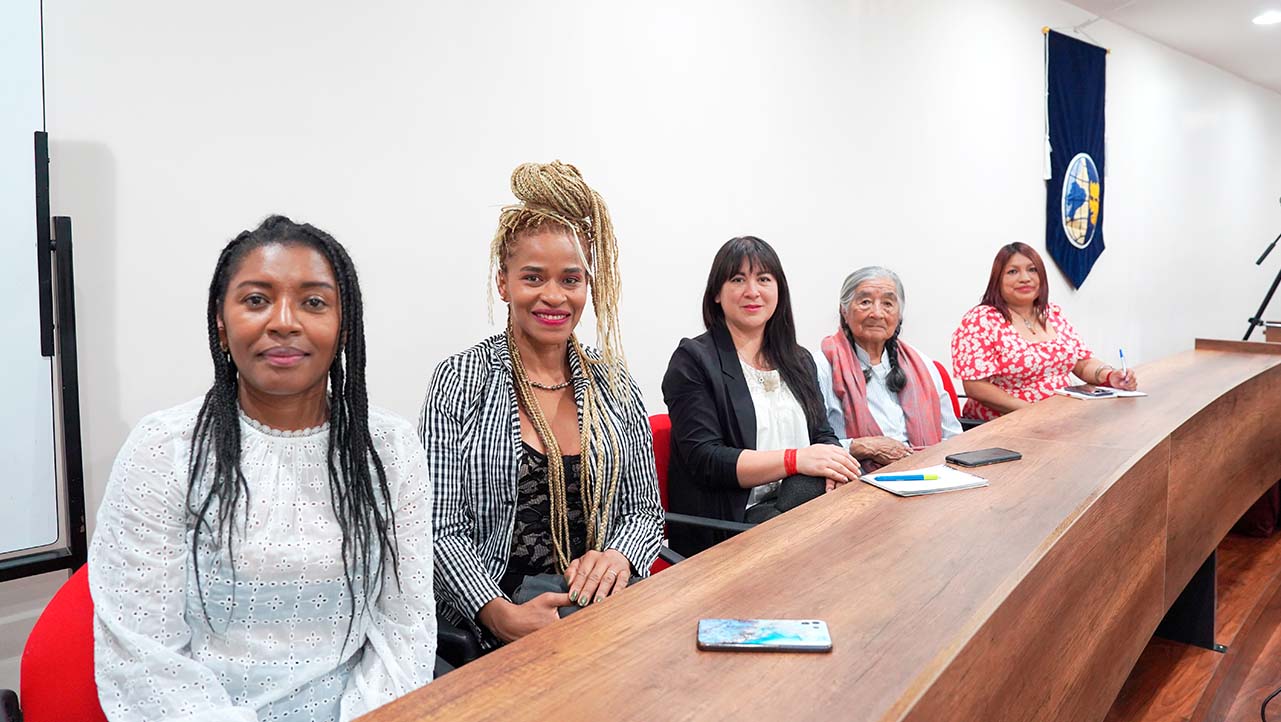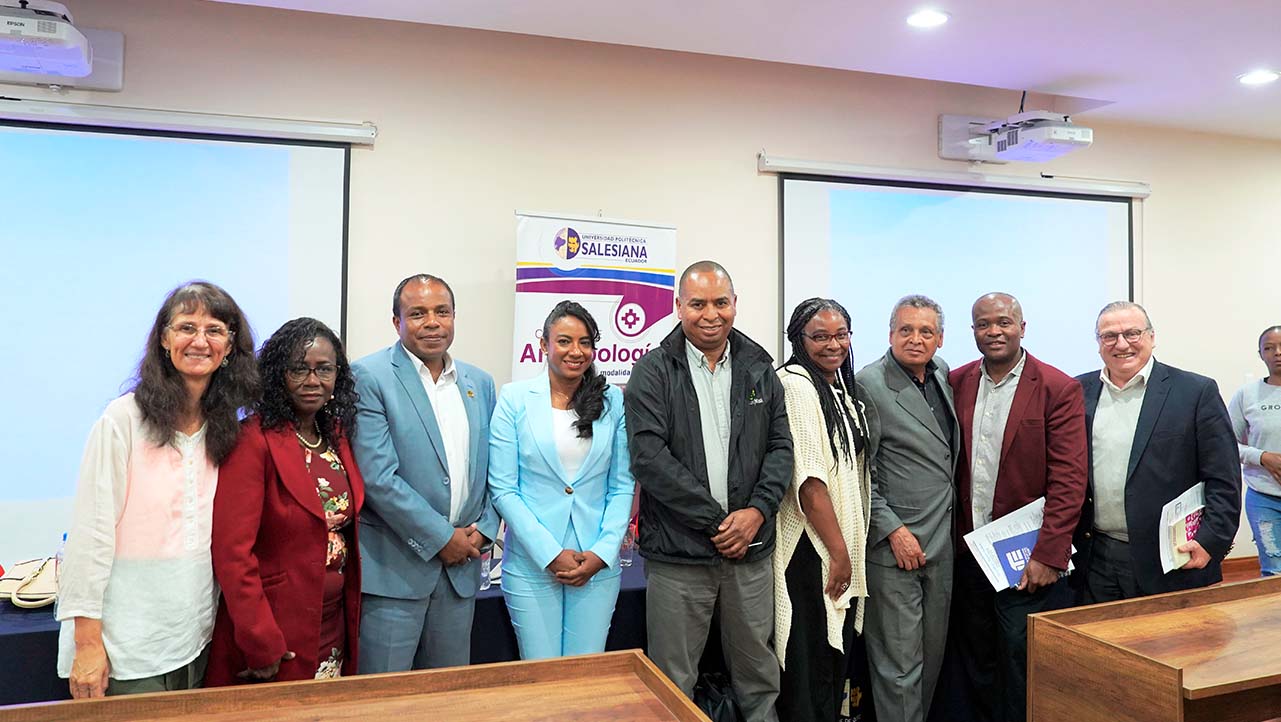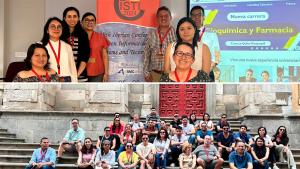Talk: Black culture and academia
Talk: Black culture and academia

To celebrate the International Day of Afro-Latin American Women, the Anthropology, Education, Bilingual Intercultural Education, the Abya-Yala Publishing House, the Afro-Ecuadorian Social Development Foundation (AZÚCAR), the Network of Universities for Studies and Chair on Afro-descendants in Ecuador, the National Coordination of Black Women (CONAMUN), the Network of Afro-Latin American, Afro-Caribbean and Diaspora Women and the Andean Region Coordination - MAAD Network, organized the talk: "Negritud y academia".
The event began with words from Karen Villa, member of the Afro-Latin American, Afro-Caribbean and Diaspora Women Network, who recognized the decision of Higher Education institutions to consolidate this organization that has been working together with the women of CONAMUNE and other organizations since 2016.
Jorge Iván Mina, president of Universidad Politécnica Estatal del Carchi, presented the topic: "Education as a tool for decolonization" and highlighted data on the participation of Afro-descendant women in education, showing that illiteracy reaches 12.3% of Afro-Ecuadorians between the ages of 15 and 49, a figure above the national average. “We seek to implement a model called "the University in rurality" which exists in Colombia and teachers move to communities; the advantage is a considerable improvement in the completion of people’s studies.”
Jeimy Hernández, from Universidad Técnica Luis Vargas Torres de Esmeraldas, said that in Ecuadorian universities, 614 professors called themselves Afro-descendants, which represents 0.034% of the total, compared to the participation of 0.21% of the population that defines itself as mestizo.
John Antón Sánchez, vice president of Universidad Amawtay Wasi, presented the topic "Inclusion of the Afro-descendant perspective in the Ecuadorian academy of the 21st century." He explained that in 1981 the first course of the Chair of Afro-descendant Studies was held in Ecuador. "For me, race, more than a biopolitical control device, is an economic category of capitalist society for the exploitation of man, especially the African" he said.
Narcisa Quiñonez, from Universidad Central del Ecuador, spoke about Afro-Ecuadorian ethno-education in Higher Education. She explained the constitutional objectives that ensure the rights and opportunities of people and nationalities and said that in the faculty where she works, there is only one Afro-descendant professor; while Kattya Hernández, researcher, presented the topic: "Blackness and academia, beyond the academic monologue: political-epistemic and pedagogical challenges."
José Juncosa, director of the Abya Yala Publishing House and professor at UPS, presented the topic "Del pensar ‘por’ y ‘en lugar de’ al pensar ‘desde’ la negritud". He cited the Afro-American author Bell Hooks who reflected on the importance of talking about differences.







Follow us
Follow us